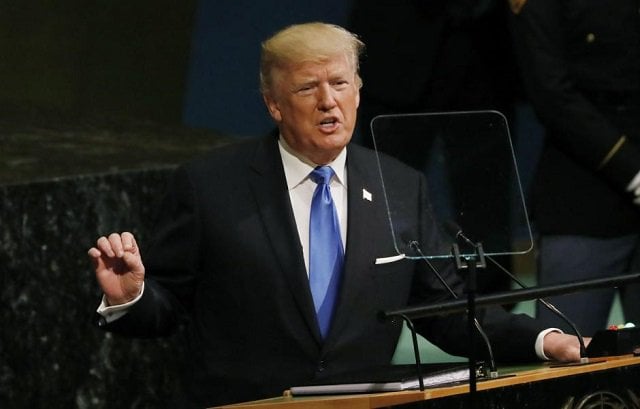
News of the decision came with word that Facebook is cracking down on efforts to use the leading social network to meddle with elections in the US or elsewhere. "It is a new challenge for internet communities to have to deal with nation states attempting to subvert elections," Zuckerberg said in a live video presentation streamed on his Facebook page. "But, we are committed to rising to the occasion."
Zuckerberg announced a series of steps that would help prevent the manipulation of the social network including more transparency on political ads appearing on Facebook. The huge social network enables any advertiser, including political operatives, to target specific groups of Facebook users based on demographics, hobbies, age or other characteristics shared at the social network.
The players in Trump's Russia scandal
Some analysts have argued that so-called "dark ads," the contents of which are not available to the public, could have inflamed tensions and potentially impacted the 2016 election. Zuckerberg said the new steps would address these concerns. "We're going to bring Facebook to an even higher standard of transparency," he said. "Not only will you have to disclose which page paid for an ad, but we will also make it so you can visit an advertiser's page and see the ads they're currently running to any audience on Facebook."
Facebook earlier this month agreed to hand over information about the ads from Russian entity known as the Internet Research Agency to special counsel Robert Mueller's investigation of the 2016 election and on Thursday decided to turn over the information to congressional investigators. "We believe it is vitally important that government authorities have the information they need to deliver to the public a full assessment of what happened in the 2016 election," Facebook general counsel Colin Stretch said in a blog post.
An internal Facebook review showed that Russia-linked fake accounts were used to buy ads aimed at exacerbating political clashes ahead of and following the 2016 US presidential election. Some 470 accounts spent a total of approximately $100,000 between June 2015 to May 2017 on ads that touted fake or misleading news or drove traffic to pages with such messages, a Facebook official said. While the amount of money involved was relatively small, enough to buy roughly 3,000 ads, the accounts or pages violated Facebook policies and were shut down, according to Facebook chief security officer Alex Stamos.
Most of the ads run by the accounts didn't directly reference the US presidential election, voting, or particular candidates but instead appeared focused on "amplifying divisive social and political messages across the ideological spectrum," according to Stamos. A core question in the congressional investigation is the extent to which online social networks were manipulated by Russian interests to covertly influence the US election, according to Representative Adam Schiff, a Democrat and the ranking member of the House permanent select committee on intelligence.
"The data Facebook will now turn over to the Committee should help us better understand what happened, beyond the preliminary briefings we already received," Schiff said in a released statement. The committee will also scrutinize how rigorous Facebook's internal investigation and why it took as long as it did to discover the Russian sponsored advertisements, according to Schiff. Schiff express belief that the committee will want to hear directly from tech companies including Facebook, Google, and Twitter in open hearings.
How Russia came to Pakistan’s help
Along with letting people visit the pages of advertisers to see what kinds of messages they are aiming at others on platform, Facebook will strengthen its ad review process, Zuckerberg said. Facebook is also ramping up its team devoted to election integrity, and looking to expand partnerships with elections officials and candidates around the world. Facebook also wants to figure out ways that internet companies can share more information about attempts to interfere with elections, according to Zuckerberg. "It is important that technology companies collaborate on this because it is almost certain that any actor trying to abuse Facebook will try to abuse other online platforms too," Zuckerberg said.








1730884134-0/BeFunky-collage-(26)1730884134-0-270x192.webp)








COMMENTS
Comments are moderated and generally will be posted if they are on-topic and not abusive.
For more information, please see our Comments FAQ